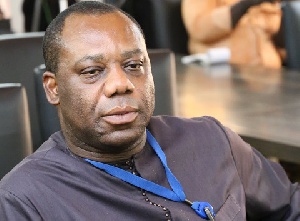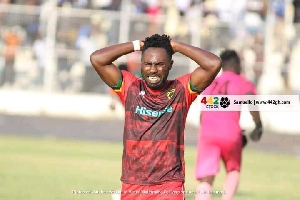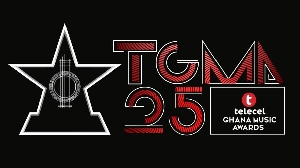- Home - News
- TWI News | TV
- Polls
- Year In Review
- News Archive
- Crime & Punishment
- Politics
- Regional
- Editorial
- Health
- Ghanaians Abroad
- Tabloid
- Africa
- Religion
- Election 2020
- Coronavirus
- News Videos | TV
- Photo Archives
- News Headlines
- Press Release
Opinions of Thursday, 19 July 2018
Columnist: Kwame Okoampa-Ahoofe, Jr., Ph.D.
Don’t waste time investigating the obvious
The decision by the Ministry of Education (MOE) to investigate the cause and/or causes of the record poor performance of our Senior High School Students in the 2018 West African Senior Secondary Certificate Examination (WASSCE) is a total waste of both time and scarce fiscal resources (See “Education Ministry to Investigate 'Poor' 2018 WASSCE Results for Math, English” 7/17/18).
It is this kind of wasteful enterprise that finds our governments taxing us literally out of breath and existence. Indeed, if Mr. Vincent Asafuah, the spokesperson for the MOE, had done a little research, he would have come to the sobering and unmistakable realization that our students are failing their WASSCE exams in droves because they are being primarily taught or instructed by adult educators who belong to the Lost Generation of Ghanaian citizens who were either born or grew up during the Rawlings-Tsikata Reign-of-Terror, when the country's public education system was effectively ground to a halt. That would mean anybody who was either born or grew up between 1982 and 2002.
That was when the rot began to effectively take roots. The rot itself, to be certain, had set in a little bit earlier. But I partially agree with Mr. Asafuah that a considerable part of the crisis of the abjectly poor performance of our Senior High School Students is a woeful lack of interest, very likely borne out of the poor teaching skills and pedagogical methodology of the children of the Lost Generation. That was when our tertiary academies were being constantly shuttered for long periods of time.
Mr. and Mrs. Rawlings decided to send all their three officially known children abroad for schooling; and even back home, the Rawlings children never attended public grammar schools. But it is actually significantly more than that. Part of it, actually the bulk of it, is due to a lack of creative and responsive and responsible leadership that has morbidly ensured that only marginal changes would be made to the rote-learning curriculum and pedagogical methodology inherited from our long-departed British colonial administrators.
Content-wise, little has changed over the course of the decades, coupled with the fact that during the 20 years that Chairman Jerry John Rawlings held us by the throttle, public education was generally poorly funded, coupled with the dispiriting situation of poorly paid teachers their salaries of which were chronically held in arrears for months and sometimes even years on end.
A poorly paid teacher is bad enough; but when the same teacher has to go without payment for work already done for months and even years, then what you logically come up with is an instructor who has been forced to disengage or lose interest in his/her profession or trade, as a result of his/her profession's not being reckoned as one of the essential services in the country.
And so the lack of interest on the part of students, as suggested by Mr. Asafuah, the MOE's spokesperson, actually cuts both ways, that is, it afflicts both students and teachers.
A soldier, it has been said, walks on his stomach. Whoever first made this observation ought to have as well added that so does the teacher.
Indeed, as I often tell my children, nieces and nephews and my students, cyber technology and the globalization of the spread of knowledge ought to make our younger generation much smarter than my generation, with a few logical and/or natural exceptions, of course. I also think that if the implementation of the fee-free SHS system focused more on computer technology and less on printed matter, over the long haul, funding cost could be exponentially reduced.
But, of course, the success of such a Paradigm Shift would be heavily dependent on a reliable energy or electricity supply. There are hundreds of pedagogical and tutorial websites that charge nominal or no fees, at all, that students could be guided by their teachers to effectively use to complement classroom instruction.
The teachers themselves could, of course, keep themselves abreast of new ideas and teaching methods by the purposeful use of the Internet or cyber technology. We also need to examine the architecture of the entire WASSCE process.
For instance, who sets the examination questions? Is that person the same as the teacher who instructs and prepares these students for the WASSCE examinations? You see, it makes a difference because examiners or exam preparers and the teachers who prepare the students for the WASSCE exams may have different expectations as well as intellectual and professional understanding of materials presented and tested on.
When more than 50-percent of our students are failing the WASSCE examinations, we definitely have more than a crisis here. Then what we clearly have here is a Systems Failure. Our entire public education system is in dire need of radical reforms, to speak much less about complete overhaul.
*Visit my blog at: kwameokoampaahoofe.wordpress.com Ghanaffairs











